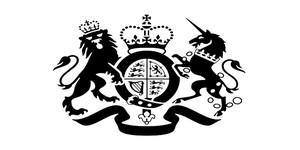Appeals Court rules against government surveillance law
January 31, 2018 | 10:22
Companies: #european-union #high-court #liberty #open-rights-group #uk-government

The Court of Appeal has ruled that the Data Retention and Investigatory Powers Act (DRIPA) 2014 was 'inconsistent with European Union (EU) law,' meaning that the law itself was de facto illegal.
Following the filing of an appeal by Tom Watson MP and civil rights campaign group Liberty, among others, the Court of Appeal's Civil Division ruled that key aspects of DRIPA - which expired in late 2016 but was replicated and expanded as the Investigatory Powers Act (IPA) 2016 - are counter to EU law, making them illegal in the UK as an EU member nation. The ruling gives appeals against DRIPA's replacement IPA a significantly greater chance of success.
'Yet again a UK court has ruled the government’s extreme mass surveillance regime unlawful. This judgement tells ministers in crystal clear terms that they are breaching the public's human rights. The latest incarnation of the Snoopers' Charter, the Investigatory Powers Act, must be changed,' claims Liberty director Martha Spurrier of the ruling. 'No politician is above the law. When will the Government stop bartering with judges and start drawing up a surveillance law that upholds our democratic freedoms?'
'This legislation was flawed from the start. It was rushed through Parliament just before recess without proper parliamentary scrutiny,' adds Tom Watson MP of his reasoning behind the legal challenge. 'The government must now bring forward changes to the Investigatory Powers Act to ensure that hundreds of thousands of people, many of whom are innocent victims or witnesses to crime, are protected by a system of independent approval for access to communications data. I’m proud to have played my part in safeguarding citizen’s fundamental rights.'
The ruling found that DRIPA, and by extension the IPA, failed to restrict access to surveillance data gathered in the context of investigations and prosecution of crime exclusively for the purposes of fighting serious crime and allowed police and public bodies to authorise their own access, rather than subjecting all access requests to a court or independent body for review.
'Once again, another UK court has found another piece of government surveillance legislation to be unlawful. The government needs to admit their legislation is flawed and make the necessary changes to the Investigatory Powers Act to protect the public's fundamental rights,' adds the Open Rights Group's Matthew Rice. 'The Investigatory Powers Act carves a gaping hole in the public's rights. Public bodies able to access data without proper oversight, and access to that data for reasons other than fighting serious crime. These practices must stop, the courts have now confirmed it. The ball is firmly in the Government’s court to set it right.'
The government has yet to respond to the ruling, while an appeal against IPA continues.

MSI MPG Velox 100R Chassis Review
October 14 2021 | 15:04








Want to comment? Please log in.